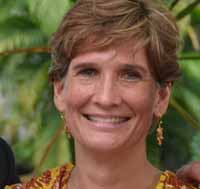I know. You hear the name Nigeria and you think ‘oh poor thing. It must be so hard.’
The country has a bad reputation. Good news is not news so when the country appears in the headlines it is rarely positive. But these stories do not reflect in any way what it is really like to live here.
I am in Lagos, on the south-western edge of the country. Here on the tropical coast, we are hundreds of miles from where the violence occurs. There may be corruption, but Nigerians are wonderfully warm and welcoming.There is very little in the way of tourism infrastructure but that is not why foreigners come here – many thousands come here for work, for the business opportunities provided by this developing and dynamic economy.
I have lived here for 5 years now and have had a most excellent, productive and fun experience. I’ve seen many expats come and go and I can honestly say that most people seem to have enjoyed their time here. I have thought about what it is that makes Lagos a nice place to live. I think it comes down to one thing: friendship.
Lagos is a hardship post in the sense that conditions are very different to what they are in tourist destinations or in developed countries. Things we are accustomed to buying are not available or are very expensive; some things we may want to do are not available; poverty and cultural differences mean that it takes more work to understand and learn to deal with some behaviours and aspects of daily life.
Probably the hardest thing for most people to get accustomed to is the restriction on our freedom of movement because of security issues. The city is too spread and hot to get anywhere on foot and the public transport system is rudimentary at best. So most of us rely on drivers to get around; some companies restrict their employee movements to certain parts of the city at certain times of the day.
However, what happens because of these ‘difficulties’ is that people tend to focus on what really matters in life – relationships. Families spend far more time together here than in developed countries where everyone has so much other ‘stuff’ to do. In lieu of going out and being entertained, people organise social activities and entertain themselves.
Social Variety
“The contacts you make, the experiences you have with people and the friendships you develop will largely define the quality of your time at your destination. A party at the most impressive venue with the most sumptuous food and the greatest band will not be much fun if you are alone or do not meet interesting people.” (The Mobile Life: a new approach to moving anywhere, p 121)
And that is the beauty of Lagos. Basically, the city is so large that there is a social group for just about everyone. The huge expat community is extremely active. There are national clubs like the Lagos Caledonian Society that throw several balls a year; there are specialty clubs like the Cigar and Whiskey club or the African Book Group that reads only books by African authors or that are on Africa.
Beyond the expats, there are foreign communities, like the Lebanese and Indians, who have been here for generations. They own many businesses and restaurants and are bridges between the Nigerian and expat groups because they are so well established in the city.
What I have personally enjoyed the most is the openness of the Nigerian community. There is a large entrepreneurial and active Nigerian middle class that runs everything from concerts and internationally recognised art exhibitions to boat clubs and the centres where you can play football on artificial grass.
Many of these Nigerians have studied abroad. They create the perfect bridge between locals and expats: they help explain local customs that we may wonder about, they open doors and show us things we would never normally have access to, they seek our company because we remind them of their lives abroad. (For lots more on Nigerian people see Culture Smart! Nigeria)
Brotherhood
Life in Lagos comes down to friends and the things we do with them. We spend Sundays at the beach drinking wine and eating the barbecued meats and homemade salads; we have dinners and dance parties; meet up in groups at the concerts and shows. Because we don’t have family we rely on newfound friends. And because many of us are transient, friendships are made quickly and without fuss.
What we remember about a posting, what stays with us years later, are the memories of moments we shared with others.
So, I guess the one thing I would say at the end of this blog is that if ever you are offered a posting to a place that does not appear in any tourist guide, you may want to take the offer seriously.
Diane Lemieux was born in Quebec, Canada and began travelling at the age of three. She has lived in ten countries on five continents and speaks English, French, Dutch and Portuguese. She has a BA in communications, an MA in development studies, a post-MA in International Relations and a journalism diploma. She has ten years experience in international development and fifteen years as a freelance author and journalist. She is the author of four books including The Mobile Life: a new approach to moving anywhere and Culture Smart! Nigeria.
Her blog: diane-lemieux.com/mobilelife and her active Facebook page on mobility

